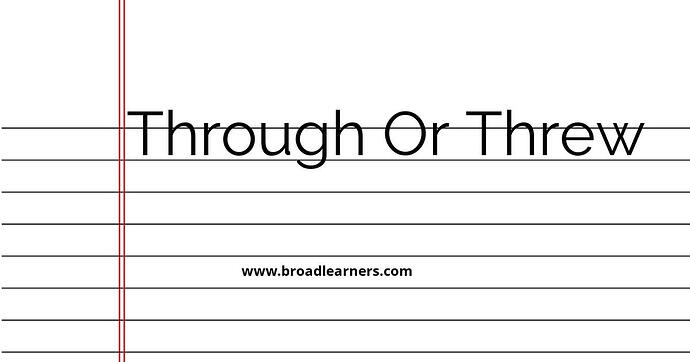'Through' and 'threw' are commonly confused words in English grammar. Understanding the difference between 'through' and 'threw' is important to use them correctly in written and spoken English.
'Through' is a preposition that indicates movement from one side or end to the other side or end of an object, place, or time. It can also mean completion or accomplishment of something.
'Threw' is the past tense of the verb 'throw', which means to propel something with force through the air by a sudden forward motion of the arm and hand.
Let's take a closer look at the meanings and usage of 'through' and 'threw'.
| 'Through' | 'Threw' |
|---|---|
| The word 'through' is used to indicate movement from one side or end to the other side or end of something. | The word 'threw' is the past tense of the verb 'throw' and means to propel something with force through the air. |
|
|
To remember the difference between 'through' and 'threw', it can be helpful to remember that 'through' is a preposition indicating movement or completion, while 'threw' is the past tense of the verb 'throw' and means to propel something with force through the air.
Here are some examples of correct usage:
- I walked through the door to enter the room. (indicating movement)
- They threw a surprise party for their friend. (referring to the action of propelling something through the air)
- We made it through the difficult times. (indicating accomplishment or completion)
- He threw the ball to his dog. (referring to the action of throwing something through the air)
Remembering the correct usage of 'through' and 'threw' will improve your grammar and communication skills.
